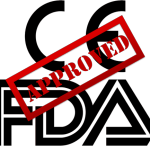The “regulatory affairs” section comprises over 200 tasks that need to be completed during the development and approval of medical devices.
Here, you will find an overview of the most essential content so that you can get your device approved quickly.
Content
On this page, you will find articles on the following topics:
- What regulatory affairs is
- Regulatory requirements
- Authorization and documentation
- Authorities, institutions, and associations
- Further topics of regulatory affairs
1. What regulatory affairs is
Regulatory affairs comprises the processes and activities that ensure that medical devices meet the regulatory requirements of the countries where they are sold. This includes
- obtaining the necessary approvals from the regulatory authorities,
- compliance with applicable regulations and standards, and
- maintaining conformity throughout the entire product life cycle until decommissioning.
The tasks of regulatory affairs also include monitoring changes to regulations and standards and communicating these changes to stakeholders within the company to ensure continuous compliance.
Regulatory affairs thus plays a crucial role in ensuring that medical devices are safe, effective, and comply with legal requirements.
Further information
Refer also to the article on regulatory affairs managers’ tasks, competencies, and earning potential. This includes the task of developing a regulatory strategy.
2. Regulatory requirements
a) Germany
| Laws |
Medical Devices Law (no longer valid)
Medical Devices Implementation Act MPDG |
| National regulations |
Medical Device Operator Ordinance (Medizinprodukte-Betreiberverordnung – MPBetreibV)
Medical Device User Notification and Information Ordinance (Medizinprodukte-Anwendermelde- und Informationsverordnung – MPAMIV) |
b) Europe
c) USA
d) Other markets
3. Approval and documentation
a) Approval
Find more information on international approval
b) Qualification and classification (How should my device be classified?)
c) Technical documentation (What do I need to document for each device?)
d) Quality management (What should your company fulfill?)
Quality management is not usually the responsibility of regulatory affairs. Nevertheless, we have listed some important articles for you.
e) Regulatory Roles
There are several expert articles on regulatory roles:
4. Authorities, institutions, and associations
a) Germany
b) Europe
c) International
| IMDRF: International Medical Device Regulators Forum |
5. Regulatory affairs: Further topics
The tasks of Regulatory Affairs also include finding and eliminating deviations and non-conformities. The (emergency) elimination is called remediation.
Note the advantages and disadvantages of Regulatory Information Management Systems (RIMS) and their role in manufacturers’ digital transformation.
Part of the tasks of regulatory affairs is regulatory intelligence.
Do you need support?
Do you still have questions, for example, about the approval of your devices? Then, take advantage of our free micro-consulting service.
If you would like support in developing and “approving” your medical devices in compliance with the law, contact us right away. The Johner Institute team will be happy to help!
PDMS stands for patient data management system. These clinical information systems are typically used in hospitals, especially in departments that treat patients in intensive care. PMDS are experiencing a new boom in Germany as a result of the funding provided by the Hospital Future Act (Krankenhaus-Zukunftsgesetz, KHZG). This article provides
Details
Companies need to master the digital transformation quickly and successfully. This also applies to medical device manufacturers because, after all, their future depends on it. Many companies make severe mistakes during this transformation (see section 4). This article provides managers with a quick overview of the possibilities of digital transformation and gives seven tips to make it…
Details
This article outlines the five most common misconceptions and mistakes medical device manufacturers should avoid during clinical evaluation and how to avoid them.
Medical device manufacturers are obliged to systematically collect and evaluate clinical data, both before and after the approval of their products. The EU Medical Device Regulation (MDR) has increased the requirements for the scope and quality of the required clinical data. This article provides you with an overview of the regulatory requirements and gives tips…
Details
The qualification and classification of IVD software determine how and how quickly IVD manufacturers can bring their software to market and what costs arise for “approval.” This article will help you correctly qualify and classify IVD software, thereby avoiding regulatory problems and the resulting costs and delays.
Details
In vitro diagnostic medical devices (IVDs) are medical devices used to analyze samples derived from the human body. Typically, these products are reagents, kits, instruments, and devices. Software can also be considered as an IVD regarding its intended purpose. When “approving IVDs,” manufacturers must comply with many regulations, laws, and standards.
Details
Including a free download of the chapter structure for the Clinical Evaluation Plan The Clinical Evaluation Plan is one of the most complex documents in the technical documentation. Alongside the Clinical Evaluation Report, the Clinical Evaluation Plan (CEP) is the document most frequently criticized by notified bodies. Even experienced clinical experts typically need 60 working…
Details
The Breakthrough Devices Program is an approval process for medical devices, and the FDA aims to enable seriously ill patients to gain faster access to novel medical devices. The authority published a “Guidance Document” in December 2018. This article explains
Details
For many manufacturers of medical devices, an FDA inspection is associated with great stress. Many companies are aware of the possible consequences, such as a public warning letter and even criminal prosecution. But they often don’t know how to avoid these consequences without shutting down the entire company for days. This article shows how This…
Details
The European In Vitro Diagnostic Medical Device Regulation (IVDR) must be followed by manufacturers who wish to place in vitro diagnostic medical devices on the market in the EU. The Regulation (EU) 2017/746 In vitro Diagnostic Medical Device Regulation (IVDR) regulates the entire life cycle of in vitro diagnostic medical devices (IVDs) in the European market. The IVDR came…
Details
